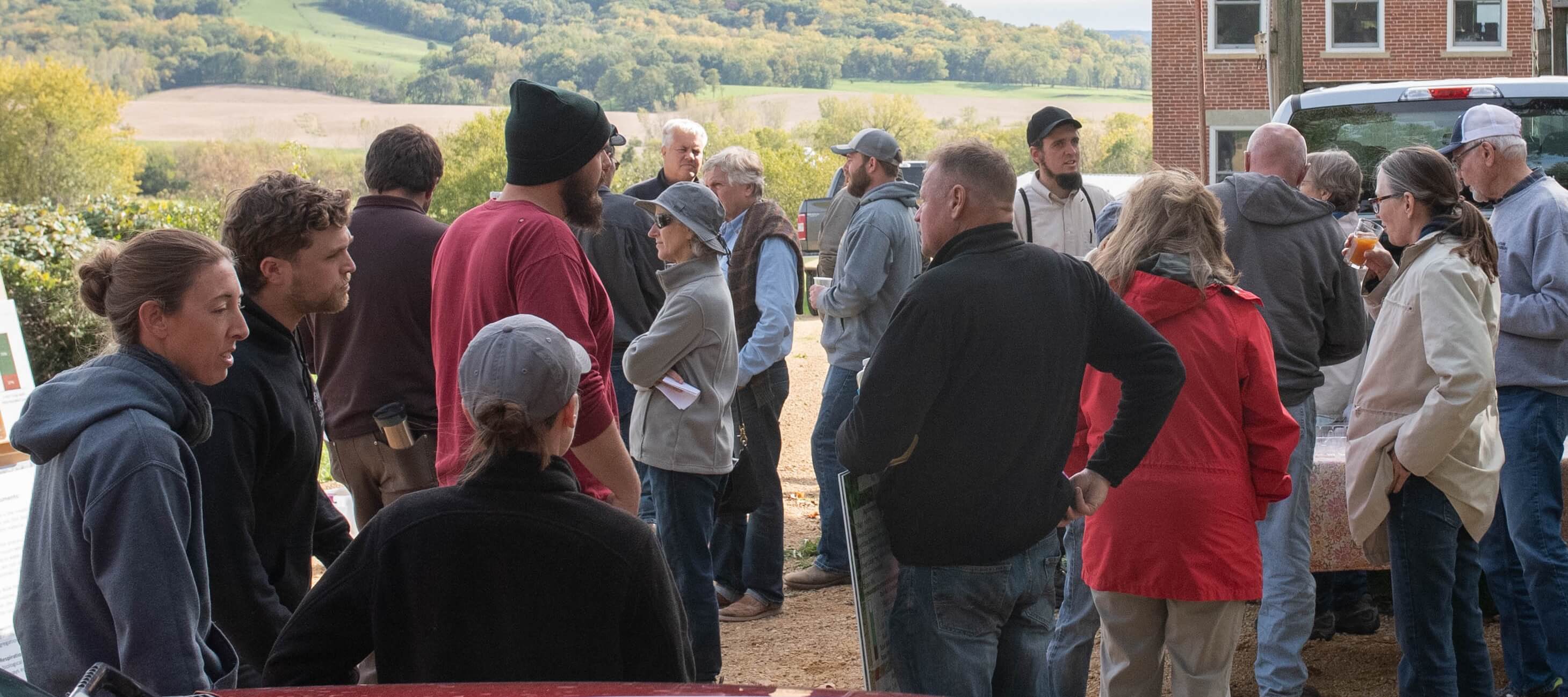How carbon farming supports local economies
by Indigo Agriculture
Learn how carbon farming helps the profitability of individual operations and the broader community.

Carbon farming opens up new revenue streams for farmers and helps operations become more profitable—all while building soil health.
But the economic benefits don’t stop on individual operations, they trickle into the communities where those carbon farmers live. While agriculture has long been an economic driver in rural communities, as new revenue streams like carbon farming become more popular, the local economies with carbon farmers are set to reap big benefits.
Agriculture and the economy
Across the country, agriculture is a major economic driver. According to the USDA, agriculture, food, and related industries contributed more than $1 trillion to the US GDP in 2019—accounting for a 5.2% share. It also accounted for 19.7 million full and part-time jobs in 2020, which is 10.3% of total US employment. 2.6 million of those jobs are direct on-farm jobs, which accounts for 1.4% of US employment.
Ag also majorly supports rural communities across the country via jobs opportunities and local spending. When agriculture brings more money to rural areas, those communities prosper. Carbon programs are poised to be a big part of that—helping growers become more profitable and in turn have more spending power that supports their community.
Carbon farming drives profitability
Carbon programs introduce a new revenue stream into a farmer’s operation. At scale, these programs can further support local economies not just by bringing money in through carbon payments and new activities like selling cover crops and custom applying cover crops, but also by encouraging growers to decrease their inputs. That equation equals higher profitability. But not all carbon programs will equally affect economies. For growers and community programs looking into what carbon programs will best support their success, look to the market-leading Carbon by Indigo program.
“I think as the price of carbon continues to go up, which seems to be the trend, it's not an insignificant portion of the revenue per acre on the operation. It's in line with our vision of what we want to see happen here at the farm, and how we want to work on the land,” says Drucker.
Additionally, beyond carbon credit generation, Carbon by Indigo incorporates soil health considerations into the program’s qualifying carbon farming practices. By building more productive soils, growers are setting their operation—and their communities—up for generational success and creating income streams that everyone can count on.
For Rodney Rulon, a corn and soybean grower in central Indiana, soil health was a strong consideration when enrolling in Carbon by Indigo, “The first [carbon] payment is really just what I hope will be the beginning of an income stream that we're going to be able to utilize and put back into conservation and soil improvement for us.”
When considering carbon programs, consider their impact on not only your operation, but also your local community — from soil health to carbon credit income, the Carbon by Indigo program offers the profitability and soil health support necessary for sustained growth for individual farms and local ecosystems and economies.
This article may include information from third-party sources or other information that Indigo may not independently verify. Carbon quantification methods, processes and understandings are in their nascency and subject to change and continuous development. The information contained herein is for general informational purposes only and may be based on generally applicable assumptions that may not be applicable to any individual operation. Actual results may differ among growers and farms based on a large number of variables. Each operation should independently consider the financial implications and all potential risks and benefits of the use of any agronomic practice. Any payments under Carbon by Indigo are subject to multi-year vesting and are contingent on continued long-term maintenance of regenerative agricultural practices and soil carbon levels. All Carbon Credits generated are subject to buffer pool holdbacks required by third-party crediting; participants will not receive payments for such holdback. Neither Indigo nor its representatives or affiliates makes any representations, warranties or guarantees as to any specific outcomes (agronomic, financial or otherwise) in connection with any recommendations, calculations or predictions. Terms, conditions, limitations and eligibility requirements apply. See program agreement for additional details regarding Carbon by Indigo.
Farmers like you are getting paid to implement practices that improve soil health. With skyrocketing input costs, see how covers help.
You might also be interested in:
Neither Indigo nor any of its affiliates makes any representations, warranties or guarantees as to any specific results or outcomes, including, without limitation, with respect to soil health outcomes or any minimum amount of greenhouse gasses sequestered or number of carbon credits generated. Participation in Carbon by Indigo is subject to the terms, conditions and limitations of the program contained in the applicable enrollment agreement. Any payments under Carbon by Indigo are subject to multi-year vesting and are contingent on continued long-term maintenance of regenerative agricultural practices and soil carbon levels. All Carbon Credits generated are subject to buffer pool holdbacks required by third-party crediting; participants will not receive payments for such holdback. Not available in all areas.
500 Rutherford Ave, Boston, MA 02129 | 844.828.0240 | info@indigoag.com